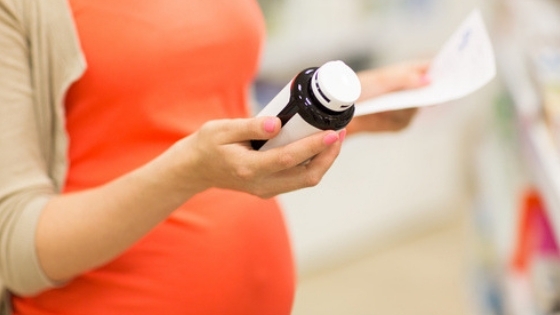Babies get all their nutrition from their mothers during pregnancy. Taking prenatal vitamins in conjunction with healthy foods helps give the right nutrients to you and your baby. Many women can benefit from the regular consumption of prenatal vitamins. It’s akin to getting an insurance policy as you’re protecting you and your little one from illness. Read on to know the importance of prenatal vitamins and proper nutrition for pregnant women.

Vitamins and Pregnancy
The body’s nutritional requirements during pregnancy differ from that before you were expecting. A particular prenatal vitamin can help meet the specific dietary needs of pregnant women. You can buy prenatal vitamins over-the-counter, but it’s best that you run it by your ob-gyn first.
Prenatal vitamins should primarily contain two things for mothers-to-be and their baby: folic acid and iron. Other essential vitamins and minerals advantageous for pregnant women include:
- Calcium
- Vitamin D
- DHA
- Iodine
Take a look at these essential ingredients for prenatal vitamins and how they are important in helping the baby’s development in more detail.
Folic Acid Prevents NTDs
Every cell in the body needs folic acid. It’s a B vitamin required for healthy growth and development. Regular intake of this vitamin before and during the early stages of pregnancy prevents neural tube defects (NTDs), which are congenital disabilities affecting the brain and spine of the baby. Research indicates that regularly consuming folic acid may even help prevent heart defects in babies.
Take a prenatal vitamin each day with at least 600 micrograms of folic acid or as prescribed by your doctor. Consume the supplement while making sure you eat fiber-rich foods to help promote healthy and normal childbirth. Folic acid works by preventing NTDs before and during the first few weeks of the first trimester of pregnancy. Take note, though, that you still need folic acid in the later stages of pregnancy so don’t remove this vitamin from your daily diet even after the first few weeks of expectancy.
Consult your doctor if you have a high risk of conceiving a child with an NTD. It’s highly possible to bear a child with NTDs if you or partner has NTD, or you’ve had a previous pregnancy with NTD.
If you’re at high risk of having a baby with NTD, it is recommended to take at least 4,000 mcg of folic acid every day. Start consuming this amount of the B vitamin from the first three months of pregnancy. Consult your doctor for additional information about the right amount of folic acid you should take to conceive a healthy child.

Iron Helps Carry Oxygen
Aside from folic acid, iron is another essential mineral you should include in your daily diet during pregnancy. Regularly consume prenatal vitamins with iron to help carry oxygen from your lungs to the rest of your body, including your unborn child. You require twice the amount of iron in your body now that you’re pregnant. You need more of this mineral to make hemoglobin, which is a protein to make more blood and carry oxygen to your little one.
You need 27 milligrams of iron every day during pregnancy. Several prenatal vitamins can cater to this minimum amount of iron for pregnant women. Supplement your iron intake by getting the mineral from other sources like:
- Lean meat and poultry
- Seafood
- Bread and pasta with iron
- Green, leafy vegetables
- Nuts and raisins
- Dried fruit
- Beans
Complications may arise during pregnancy if you don’t get enough iron. You’re more likely to have anemia or get infections if you lack this mineral. You also won’t have enough energy to move around, and you’re at risk of delivering a premature or low-birthweight baby.
Calcium Builds Stronger Bones
Calcium is an element and a mineral essential for many living organisms, especially humans. It’s also the most abundant mineral found in the human body and a necessary component for good health. Pregnant women need more calcium in their body to build better and stronger bones for their child. This mineral can help in the healthy development of the infant’s bones, heart, muscles, and teeth.
You need 1,000 mg of calcium every day when you’re expecting. Take prenatal vitamins with this amount. If the vitamin cannot cater to that amount of calcium to meet daily requirements, you can supplement the intake by consuming food and drinks containing the mineral. Other good sources of calcium are:
- Milk
- Cheese
- Yogurt
- Kale
- Broccoli
Other than these options, you can also drink orange juice with calcium. Read the package label to see if the beverage has this mineral to help supplement the healthy growth and development of your baby.
Vitamin D Fortifies the Muscles, Nerves, and Immune System
We can get vitamin D when we expose our skin to sunlight. This vitamin helps our body’s muscles, nerves, and immune system to properly work. Pregnant women can supplement the acquisition of vitamin D by regularly consuming prenatal vitamins. Your child also needs a sufficient amount of vitamin D to help in the proper development of bones and teeth.
You need 600 international units (IU) of vitamin D every day during pregnancy. Aside from prenatal vitamins, you can also get this vitamin from fatty fish, milk, and cereal. If you plan on supplementing your intake of vitamin D by basking in the sun’s rays, make sure you don’t overexpose yourself and that you do it during hours when the exposure to the sun is considered safe. Too much sunlight can lead to skin aging and cancer.

DHA Develops the Brain and Eyes
Docosahexaenoic acid or DHA is an omega-3 fatty acid that helps in the proper development of your baby’s brain and eyes. You need 200 mg of DHA every day while you’re pregnant. Consume the right amount of this nutrient to help your baby while still in the womb.
Consult your prenatal vitamin provider if they have a supplement that can cater to your minimum DHA needs. While several prenatal vitamins have folic acid and iron, not every supplement made for pregnant women have DHA.
You can also add DHA to your daily diet by acquiring it from other sources like:
- Fishes low in mercury (e.g., anchovies, herring, halibut, salmon, and trout)
- Orange juice and milk with DHA
- Eggs with DHA
Iodine Helps Your Thyroid
Iodine helps in the healthy development of thyroid hormones. The thyroid gland is responsible for making hormones that help the body use and store energy gained from food. This mineral is essential during pregnancy to aid in the development of your baby’s brain and nervous system.
You need 220 mcg of iodine each day while you’re pregnant. Like DHA, not all prenatal vitamins will contain iodine. Ask your vitamin provider to check if they have supplements with the right iodine content.
Other good sources of iodine to complement your consumption of prenatal vitamins include:
- Milk, cheese, yogurt, and other similar dairy products
- Fish
- Iodine-fortified bread and cereal
- Iodized salt
The Significance of Prenatal Vitamins for You and Your Baby
Prenatal vitamins are essential for both the expecting mother and her unborn child to assure their health and safety. It’s even more critical in the third trimester as compared to taking the supplements in the first few weeks of pregnancy. It’s during this period when the baby gets an increase in development for their brain, lungs, and central nervous system. Hearing also fully develops during this period.
Consume prenatal vitamins rich in iron, DHA, calcium, and vitamin D during the third trimester. These vitamins and minerals help secure the baby’s final development stages while they’re still in the womb.
Prenatal vitamins are essential for the healthy growth and development of your child. The right supplements may also help in the prevention of ailments acquired from childbirth. Regularly consuming prenatal vitamins may even help lower autism risk in 2nd children. Remember, don’t become complacent during the intake of these vitamins. Consume these supplements with a healthy diet for the healthy development of your baby.
 Kaboutjie SA Mommy Blogs by Lynne Huysamen
Kaboutjie SA Mommy Blogs by Lynne Huysamen





I had many deficiencies during my pregnancy. A prenatal vitamin is a must! I had to take extra iron and vitamin c and at every appointment my iron was still low and now I still have low iron even afterwards.
What about those women who carry healthy babies full term without any of vitamins? I took my vitamins everyday and ate healthy.
I’m sure plenty of babies are born fine without prenatal vitamins but like you I also followed the advice of my midwife and gyni and took vitamins 🙂
this is so important!